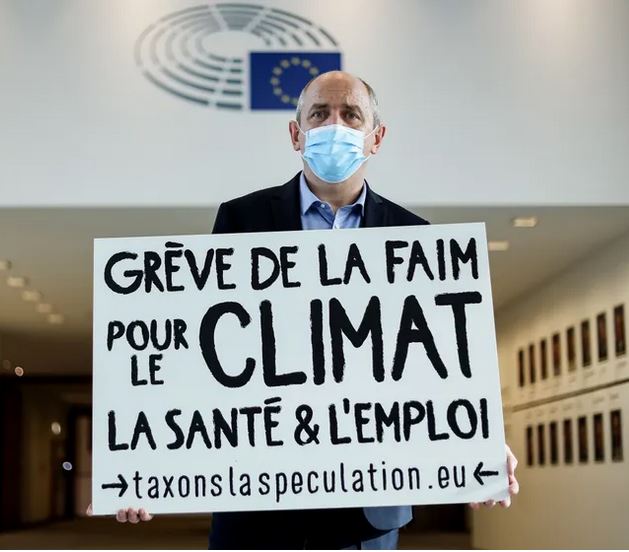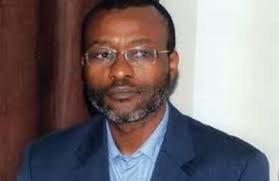A deep crisis
The so-called “developed” world, particularly Europe, badly supports financial crises that extend into recession. There is disagreement on ways to regain growth: labour flexibility that implies the loss of social benefits, public debt reduction with reduced investments and consequently loss of jobs, restructuration of the pensions and social security funds with its consequences of weakening of the life of the most vulnerable segments of society. The crisis hurts.
People react strongly against the austerity measures to which they are subjected. They are well aware that the net result of the situation will be that all will become poorer and must learn to live more poorly.
At the other side, ‘developing’ countries, even if they do not suffer the financial crisis as severely as the ‘developed’ world, do not live in opulence. The majority of their populations live poorly. Some of these countries are even labeled “LDC = Least Developed Countries” and enjoy a special regime for assistance.
Between these two categories, ’emerging’ countries enjoy a sustained rate of growth. However some of them still consider themselves as ‘developing’ and benefit from the advantages of the situation. The majority of their populations live in great poverty. The recent example of the collapsed building in Bangladesh highlighted the slavery to which local workers are subject to the benefit of foreign multinationals.
In a nutshell, it is reasonable to say that all of us -less the privileged classes – we will have to live more frugally if not more poorly.
At the origin of these crises, we can point the finger to the speculators and the bankers operating without control but one must realize that behind these causes, emerges a deeper reality. Step by step, the world realizes that it cannot continue using non-renewable energy and natural resources at the same pace. The risk of jeopardizing the standard of living of future generations is a new concern.
Consumption under control for a production that preserves the future
The world followed in June 2012, the World Conference RIO + 20. ‘Plus 20’ to remind that it was 20 years ago, in 1992, that was held in Rio de Janeiro, Brazil, the first major conference to stimulate the commitment of all countries for a sustainable development.
In 1992, at the dawn of the 21st century, heads of 178 Governments signed an action plan called ‘Agenda 21’ which gave the directions to be followed in all areas of world management to ensure a better future for humanity. Twenty years later, it is clear that much remained to be done to build “The future we want” after the title of the final document of RIO + 20.
In Agenda 21 awareness that the world must change its mode of consumption is already clear. The concerned authorities tried to define what is the concept of sustainable consumption and production (SCP).The Minister of the environment of Norway described SPC as follows: “Using services and products to respond to basic needs and bring a better quality of life while minimizing the use of natural resources and toxic materials as well as emissions of waste and pollutants throughout the lifecycle of the services or their product not to endanger the needs of future generations.” In short, it is an alarm signal: we consume too much and too badly, abuse of natural resources, produces abundant and polluting waste. We prepare for our children poor living conditions!
This call for Sustainable Consumption and Production was not followed by a serious commitment. But the facts are incontrovertible: the way we go on seriously damages the planet Earth and this will have consequences.
The Rio + 20 Conference therefore took this theme anew and launched a decade for Sustainable Consumption/Production – 10 YFP (10 Year Framework of Programmes on Sustainable Consumption and Production)
A downward spiral
One of my professors of Economics said: “a child is good for the economy; it tears; it makes buy; it pushes to produce!” The entire economic sector pushes us to buy and consume. Advertising encourages us to buy the latest model and reject the previous still good one. You have to consume because mass production plants must be profitable. And if demand grows, they will increase production: vicious circle. New models best-performing gadgets appear every day on the market and make commercials. It’s called “consumerism”.
In the definition of Sustainable Consumption and Production (SCP), waste is an issue. Waste management is a problematic issue in many countries. Some have already made great strides in educating people to sort their waste for recovery or recycling. Firms of electrical and electronic equipment must assume the recovery of obsolete equipment. A new industry of recycling of waste takes place. But all this has a cost.
The poorest countries (LDC) do not have the means to ensure this recycling. Wastes are then accumulated in stinking sites where a fire smolders continuously. Toxic fumes that the poor population that lives and on those wastes breathe, are harmful to their health.
How to get out?
A first way out: rushing forward without concern. Some do not worry about the exhaustion of non-renewable natural resources; “we will find new fields to operate… “. Pollution problems are not their concern: “nature has such a capacity of adaptation…” This is not the opinion of those studying the consequences of this policy on the quality of life for the generations that follow us. The massive destruction of forests causes desertification of many territories and increases the number of displaced persons in many countries; the acidification of oceans profoundly modifies the marine ecological systems; climate change cause the melting of the glaciers and scare people of Small Island States of low relief.
The proposed track is to control the cycle production/consumption. The production will be slowed if there is less consumption. The effect is already observed today in Europe where due to the financial and economic crisis; people limit their non-essential spending with immediate result: enterprises must put their staff on technical leave because of overproduction.
It is certain that the economic crisis will result in the closure of some plants. What matters is the conversion of the productions. Subsidizing unprofitable companies due to global competition and overproduction is suicidal. The world is an open field for creativity and new initiatives. The space is wide open for initiatives that will reduce the consumption of energy and natural resources to avoid waste.
A more immediate way: sobriety
1. As Christians we may do something to preserve the future; let us adopt a life style that will be an example for the world.
2. We know the campaign for the 3 Rs: Reduce – Reuse – Recycle. Reduce as much as possible our consumption – Reuse even after some repair. Some are adding a fourth ‘R’ for Refurbish ; repairing early what is going wrong safes money.
3. The third ‘R’ becomes more important today: Recycle. Many countries have already entered in this economy. We should turn our attention, in particular, on what is called “e-waste”, electric and electronic end-of-use items. The reason is twofold: first the way people handle these ‘waste’ is dangerous because they contain toxic substances and secondly because they contain precious metals that specialized enterprises can retrieve.
4. June 5 is the World Environment Day. On this occasion, the UNEP (United Nations Environment Programme) has launched a campaign with the theme Think, Eat, Save (visit the website www.unep.org/wed). More than a third of the food produced in the world is lost while food security is an emergency in many countries. Why this loss: three reasons. 1 waste – 2. the excessive requirements of supermarkets in beauty of the displayed products – 3. the quality of the transport and storage of foods, especially in the developing world.
These are a few thoughts that I deliver to my brothers and sisters for the happy future of humankind. We are not to change the world in on day but small actions may be a real begin. In this World Environment Day, let us learn and teach how to think, eat and save!



Leave A Comment
You must be logged in to post a comment.